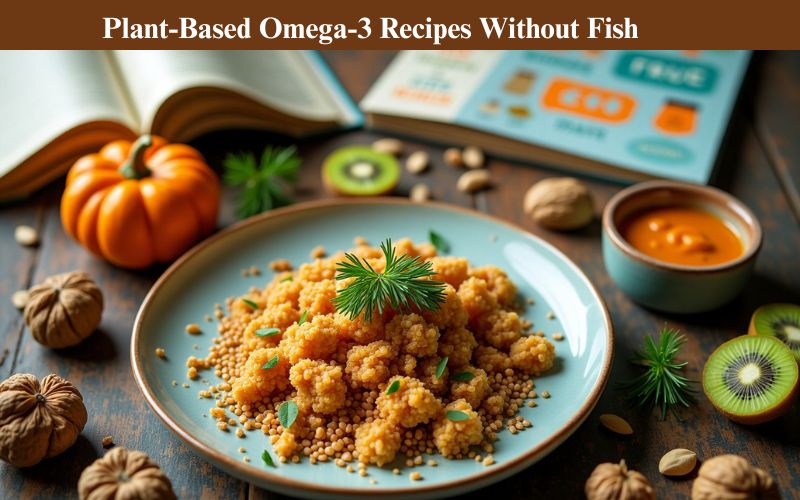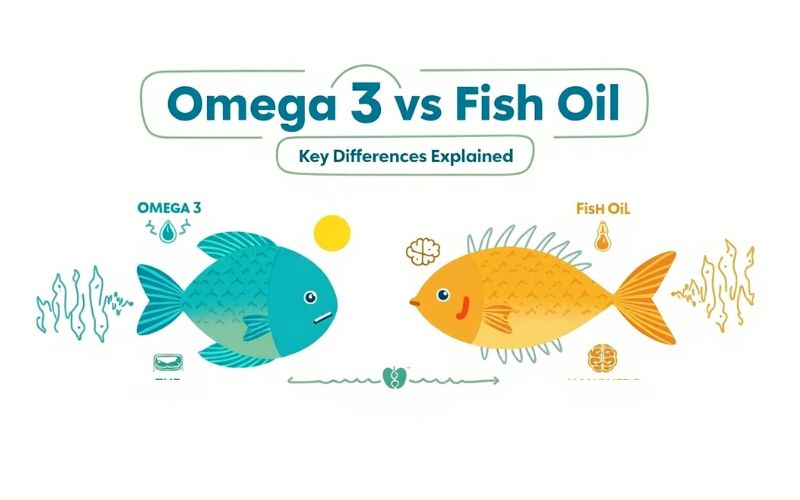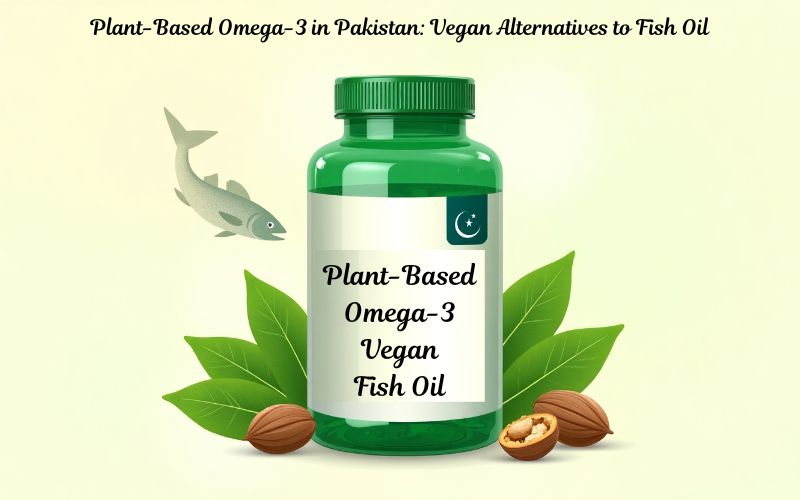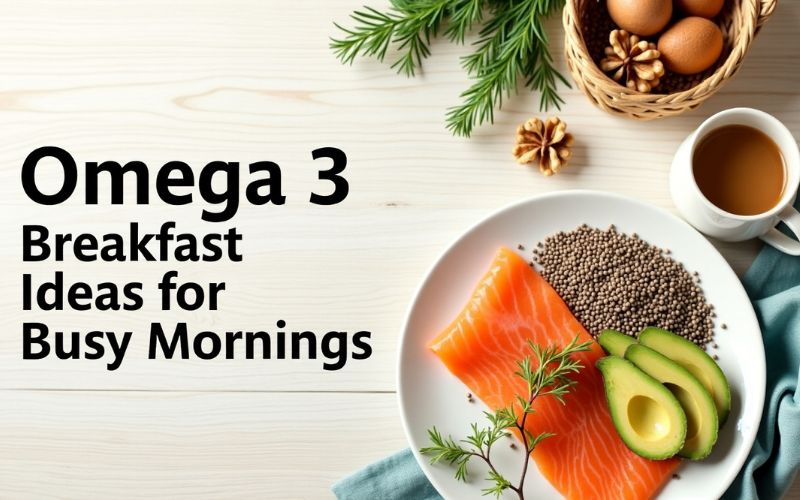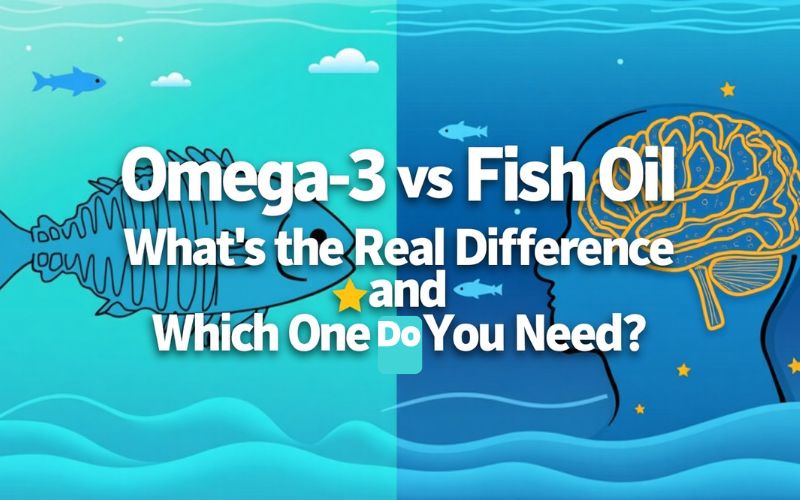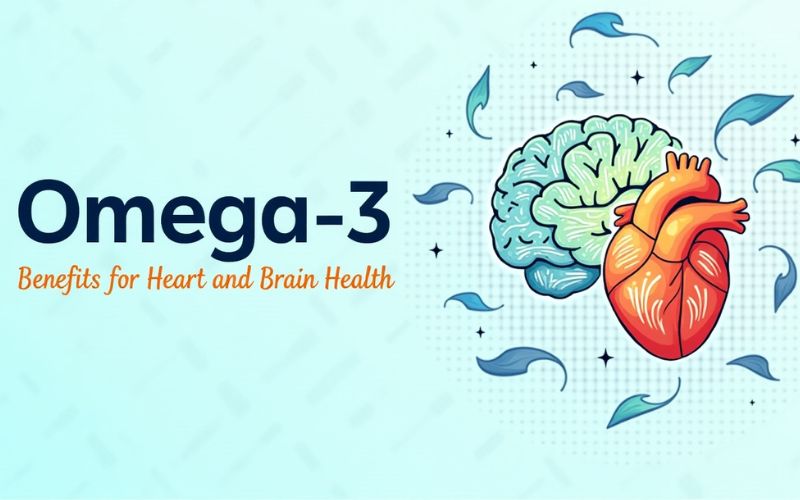Omega-3 fatty acids are essential for heart, brain, and joint health. While fish is the most well-known source, vegans can also meet their omega-3 needs with the right plant-based foods. Deficiency can lead to fatigue, poor memory, and skin issues. ALA (alpha-linolenic acid), found in plants, is converted in small amounts to DHA and EPA the two most vital omega-3s. Therefore, understanding vegan sources is crucial.
Table of Contents
Top Plant-Based Sources of Omega-3 Fatty Acids
- Flaxseeds: Ground flaxseeds offer a high dose of ALA.
- Chia Seeds: A fiber-rich superfood packed with omega-3s.
- Walnuts: Just a handful daily provides a powerful ALA boost.
- Hemp Seeds: Great in smoothies and rich in healthy fats.
- Edamame: Young soybeans are both protein- and omega-3-rich.
- Algal Oil: The best vegan source of DHA and EPA.
5 Delicious Plant-Based Omega-3 Recipes Without Fish
Discover 5 tasty plant-based omega-3 recipes that deliver nutrition and flavor no fish needed!
1. Walnut and Flaxseed Soy Yogurt
This creamy breakfast combines ground flaxseed and chopped walnuts in unsweetened soy yogurt. It delivers healthy fats, fiber, and probiotics in one bowl.
2. Chocolate Peanut Butter Smoothie
Blend banana, natural peanut butter, flaxseed, and almond milk with cocoa powder. A great post-workout smoothie loaded with omega-3 and protein.
3. Vegan Artichoke and Edamame Salad
This refreshing salad includes canned artichoke hearts, shelled edamame, cherry tomatoes, and red onions, dressed with olive oil and lemon. Nutritious and omega-3 packed.
4. Tarragon Tofu “Chicken” Salad
Marinate tofu with flaxseed oil, lemon, and herbs. Toss with chopped celery, vegan mayo, and walnuts for a protein-rich, omega-3 lunch option.
5. Zesty White Bean and Arugula Salad
Combine white beans, arugula, red peppers, and onions with a flax oil vinaigrette. This salad is high in fiber, protein, and healthy fats.
Omega-3 Conversion: ALA vs DHA vs EPA in Vegans
ALA (from plants) converts inefficiently to DHA and EPA (used by the brain and heart). That’s why many vegans consider taking algal oil supplements for direct DHA/EPA intake. Algal oil is sustainable and 100% plant-based.
Tips to Boost Omega-3 Absorption in a Vegan Diet
- Use flaxseed or walnut oil in raw form (not cooked)
- Balance omega-6 intake by limiting sunflower or corn oil
- Pair omega-3s with vitamin-rich whole foods (like leafy greens)
Expert Insight: Can You Really Skip Fish and Be Healthy?
Absolutely. Studies and nutritionists confirm that a balanced plant-based diet with seeds, nuts, and algae can meet your omega-3 needs. The key is consistency and variety.
Conclusion: Fuel Your Body Without Fish
Plant-based omega-3 recipes are not only tasty but essential for those following a vegan or low-fish diet. They help support brain, heart, and immune health.
Looking for more plant-based health tips or vegan supplements? Visit https://nutritionalworld.com.pk/ to explore our vegan range!
FAQs
Q1: What are the best vegan sources of omega-3? Flaxseeds, chia seeds, hemp seeds, walnuts, edamame, and algal oil are great fish-free omega-3 sources.
Q2: Can you get enough omega-3 without fish? Yes, a balanced plant-based diet and algal oil supplementation can meet omega-3 requirements.
Q3: Is flaxseed better than fish oil? Flaxseed is excellent for ALA, while fish oil has DHA/EPA. Algal oil is the best vegan equivalent.
Q4: What is algal oil and is it vegan? Algal oil is derived from algae and is 100% vegan. It offers DHA/EPA similar to fish oil.
Q5: How often should I eat omega-3-rich foods? Aim to include flaxseeds, chia, or walnuts daily, and take algal oil weekly if needed.














